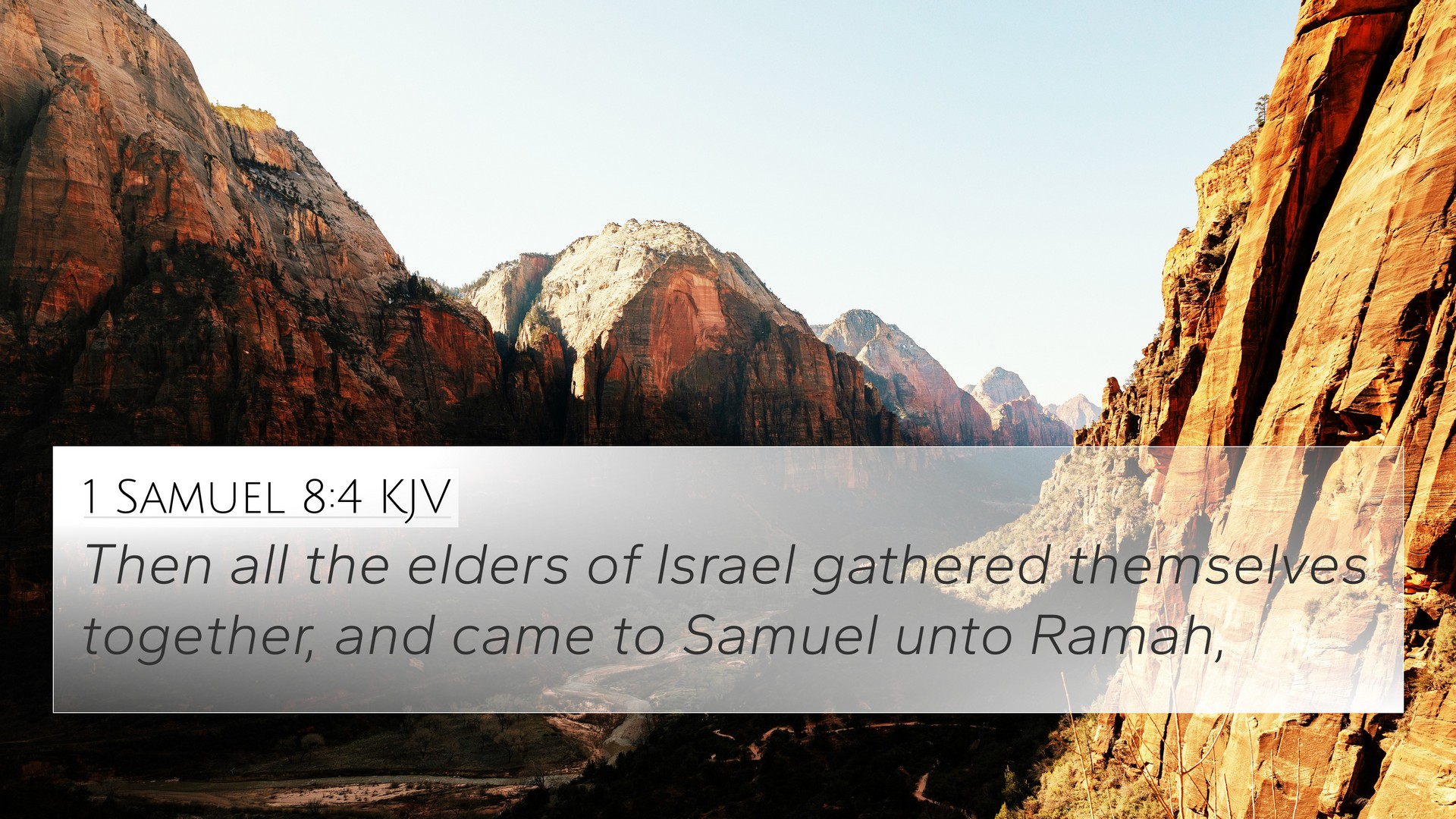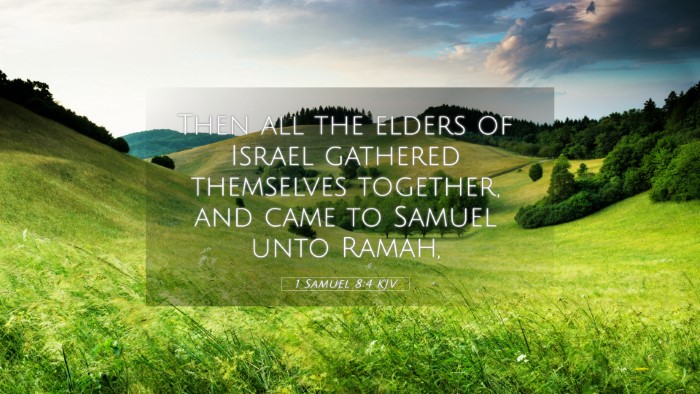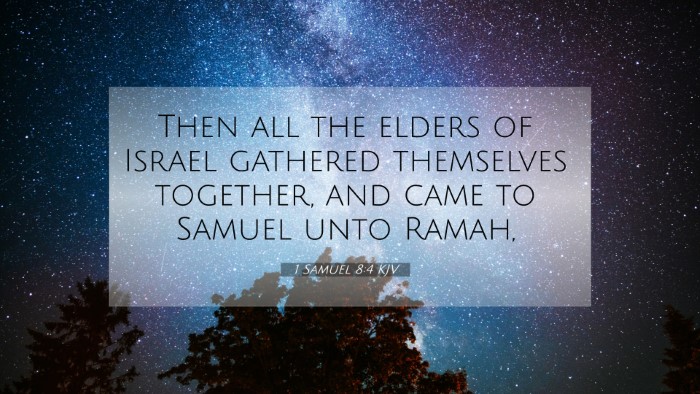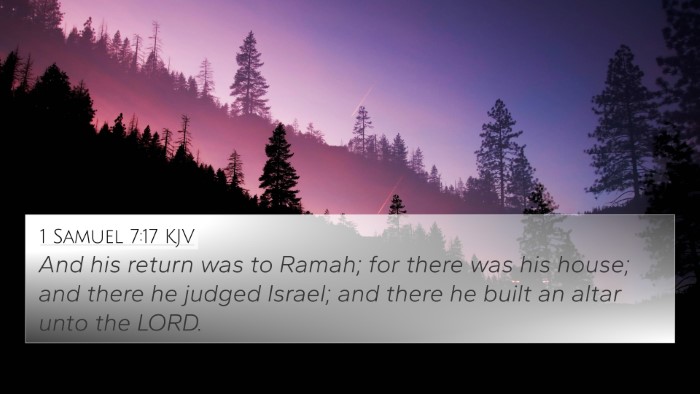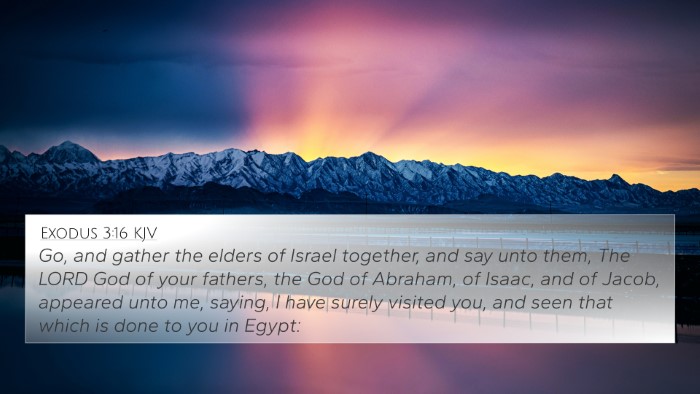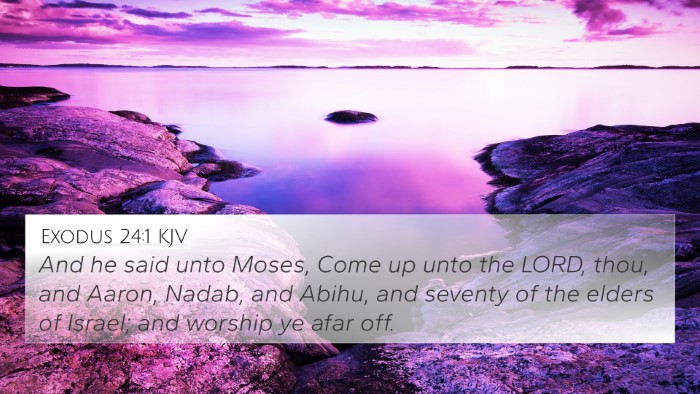Understanding 1 Samuel 8:4
Bible Verse: 1 Samuel 8:4 - "Then all the elders of Israel gathered together and came to Samuel at Ramah."
Context and Significance
The verse serves as an introduction to a pivotal moment in Israel's history where the elders seek a king. This not only reflects their desire for political stability but also highlights their rejection of God as their supreme leader.
Commentary Insights
-
Matthew Henry:
Henry emphasizes that the elders' request for a king demonstrates their desire to be like other nations. This reflects a lack of faith in God's sovereignty and provision, an act that led to significant consequences for Israel.
-
Albert Barnes:
Barnes notes that this plea for a monarchy marks a transition from the Theocratic to a Monarchical system in Israel. The elders stand united in their approach to Samuel, symbolizing a collective shift in Israel's governance.
-
Adam Clarke:
Clarke elaborates on the elders' motivations and underlying fears. They sought to secure their future during a time of potential threats, indicating a human tendency to rely on earthly governance over divine leadership.
Thematic Connections
This verse can be linked to several other scriptures which relate to themes of leadership, reliance on God versus human authority, and the consequences of disobedience:
- 1 Samuel 10:19: The people's rejection of God as King emphasizes their choice to rely on a human ruler.
- Judges 8:23: Gideon’s refusal of kingship reinforces the concept of God as the rightful ruler over Israel.
- 1 Samuel 12:12: Samuel reminds the people of their choice and its implications, highlighting the theme of obedience to God.
- Hosea 13:10: This verse points to the futility of seeking human kings when God is willing to be the sovereign, reinforcing the notion of divine governance.
- Psalm 118:8-9: Trusting in God over man is a key theme seen throughout scripture, showing the ongoing need for divine leadership.
- Isaiah 33:22: This scripture affirms God's role as judge, lawgiver, and king, contrasting with the people's desire for an earthly king.
- Matthew 20:25-26: Jesus's teaching about servant leadership is a fundamental counter to the Israelite desire for a monarch.
Cross-Referencing Insights
Understanding the connections between Bible verses strengthens the interpretation of 1 Samuel 8:4. Here are some methods to delve deeper:
- Using a Bible Concordance: Look for references to kingship and leadership.
- Bible Cross-reference Guide: Utilize these tools to identify parallels between 1 Samuel and the New Testament discussions of authority.
- Cross-reference Bible Study: Engage with both Old and New Testament texts to uncover contrasts in the understanding of authority.
- How to Use Bible Cross-References: Search related themes in the prophetic books that discuss kingship and governance.
- Bible Chain References: Link verses about God's sovereignty and human rebellion.
Conclusion
1 Samuel 8:4 marks a critical juncture in Israel's history—demonstrating the people's yearning for human governance over divine authority. By examining this verse alongside related scripture, one can appreciate the depth of the narrative concerning faith, obedience, and the consequences of human choices in light of God's ultimate plan.
